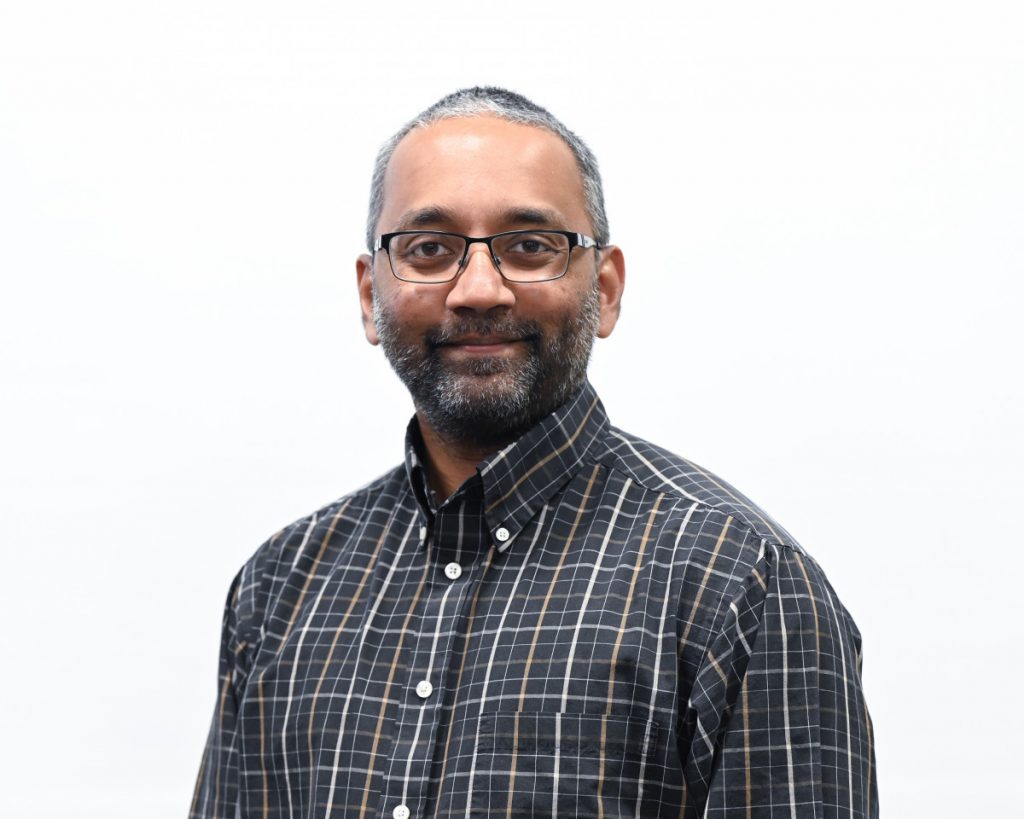
James Buckser
Staff writer
In 2021, Devaka Premawardhana wrote an op-ed in the Los Angeles Times.
“It was a reflection on the state of affairs in the United States, especially the situation of hyperpolarization,” Premawardhana said, “the partisanship but also the real acrimony that we see between different groups within the United States, and that’s been, as I’m sure you know, intensified in recent years.”
An anthropologist and author, Premawardhana is currently an associate professor of religion at Emory University and the recipient of a Fulbright grant for his work researching Indigenous traditions in Mozambique.
Premawardhana will speak at 2 p.m. today in the Hall of Philosophy, as a part of Week Nine of the Interfaith Lecture Series, with its theme “Realizing Our One World: Strengthening Interconnection.”
The talk, Premawardhana said, will focus partially on the idea of “tribalism,” which ties into the ideas expressed in his op-ed.
“We call it sometimes political tribalism, or the way in which we become sorted into political tribes,” Premawardhana said, “with the understanding being that this is a way of indicating how incapable we are of talking across the divides, or engaging with things that are different or things that are outside of our own so-called tribes.”
Premawardhana said he felt there was something to the issue of polarization, and that we are in “dangerously polarized times,” but as he discussed in his op-ed and plans to elaborate upon in his lecture, he’s not sure that “tribalism or anything referencing tribes” is the “appropriate term.”
While communities like the Makhuwa-speaking people, whom Premawardhana has studied, could be “construed as tribes,” he said, and anthropologists have historically done so, they live in ways that are “actually quite inclusive of things outside of their own community, that are actually quite open to engagement with alterity.”
Premawardhana said he tries to apply that idea to contemporary American politics, and that in referencing tribes in relation to problems in the United States, “you might actually find solutions to the problem of polarization.”
“These are communities that figure out how to be hospitable, welcoming, open to difference, and generally inclusive in a way that ‘tribalism’ as a term is, in a sense, exactly the opposite of that,” Premawardhana said.
He said the Makhuwa are “very much at the heart of his talk” and he hopes he will be “introducing some of their wisdom” to the audience “with the intent of shedding some light on the ways in which we talk about the current state of affairs in the United States.”
Premawardhana’s book, Faith in Flux: Pentecostalism and Mobility in Rural Mozambique, published in 2018, focuses on Pentecostalism, “Africa’s fastest growing form of Christianity,” which is known for “displacing that which came before,” according to the book’s description.
Despite Pentecostalism’s reputation, Premawardhana “witnessed neither massive growth nor dramatic rupture in the part of Mozambique” where he worked, with his research opening “a new paradigm for the study of global Christianity.”
“No less than ancestral traditions, Pentecostalism also is marked by mobility,” Premawardhana writes in the introduction to the book.
“It presents itself, thus, as continuous with Makhuwa ways of being, continuous precisely through its dynamics of change.”
The dynamics of change, Premawardhana said, has to do with “this way of being that’s open to being changed,” which is comfortable with transformation, uncertainty and ambiguity.
Premawardhana touched on Yale scholar Amy Chua, author of Political Tribes: Group Instinct and the Fate of Nations, who spoke at Chautauqua on her book in 2018.
“I think her argument is precisely right about the antidote to the problem,” Premawardhana said. “Which is to get people — in this case, Americans — to simply spend time with, to dislocate themselves, to move to other places at least for a period of time, places that they’re otherwise unlikely to go, as an experiment both for the civic good of the country, but also for individuals’ own well-being, as a way of expanding their horizons and getting out of their comfort zones and being richer people as a result.”
In addition to Faith in Flux, Premawardhana has two forthcoming projects. One is an edited volume with Don Seeman, and the other is a new book based on his research in Mozambique with the Fulbright grant, tentatively titled Rite of Passage, Rite of Return: Male Initiation in Mozambique and the Limits of Linear Thinking.
That book, he said, will be a “history of the revival of traditional rites of passage among the Makhuwa.”
“That’s a separate set of theoretical and conceptual issues, but that’s generally the theme,” Premawardhana said. “(It) comes up in my first book, but you could say the second one, I intend to be an expansion.”
Premawardhana hopes Chautuauquans leave his lecture with a “more nuanced understanding” of “what Indigenous societies value and how they understand life.”
There’s “a lot of misunderstanding” and negative stereotyping of “what we might call traditional societies, African societies in particular, that they’re only marked by things that are negative,” he said, like poverty, sickness, or superstition.
“I have found that there’s tremendous wealth and wisdom in these communities that are generally unknown or simply untapped because we just don’t even realize how much there is to learn from them,” Premawardhana said. “The general hope is to renew our curiosity about communities that are historically on the margins of our world and on the margins of our consciousness.”




